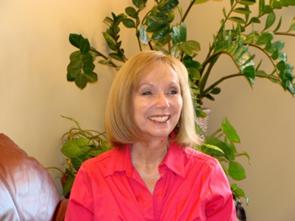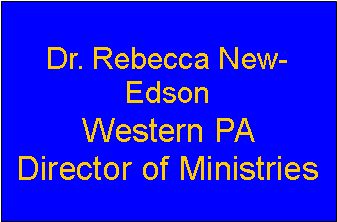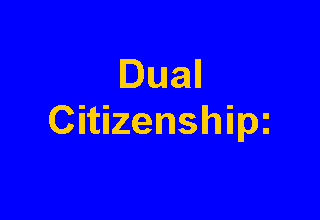|
The Minister's Responsibility to the Community and Nation
"This world is not my home, I'm just a passin' through. . . ." Jim Reeves wrote those lyrics over 50 years ago. To the Christ-follower, they ring just as true today. It is when we see the heartbreaking results of sin within our world, we are reminded that we live in a world in which we are only "a passin' through."
And yet we are not called to just "pass through.” We are called to leave a mark! From the Old Testament all the way through to the end of the New Testament, the patriarchs and prophets, the apostles and the writers showed—by their writings, their preaching and their lives that we are to leave a legacy. As dual citizens of the kingdom of earth as well as the Kingdom of God, we will be judged by our lives as we journey through to our eternal destination.
WHAT IS THE KINGDOM OF GOD?
Space does not allow a thorough study of the Kingdom of God. However, a few statements of definition of a kingdom might prove helpful. I believe there are three ways in which we can consider a kingdom: a realm, a set of values, and a people.
A kingdom is a realm where a king reigns—a sphere of influence. The king's will is done in this realm because what the king says is law. In C.S. Lewis's brilliant allegory, Chronicles of Narnia, the kingdom of Narnia was the realm of Aslan, and what he said was law. Like all kingdoms, his domain had boundaries. It is as readily apparent to the readers when they have entered the kingdom as when they have left it. Therefore, when we consider the Kingdom of God, we think of a territory where God's will is law. The influence of the King should be readily apparent when people are in the midst of God's Kingdom.
A kingdom could also be understood as a set of values. Throughout the world every kingdom has developed values by which it functions. As we observe the ant kingdom, we recognize the value system the ants utilize to survive. Their diligence, team work and priority in resourcing and protecting the queen are readily apparent to students of these fascinating creatures. In the Kingdom of God, the citizens submit to God's values. God's priorities become the Kingdom-dwellers’ priority as they live out their lives.
Finally, it is helpful to recognize that a kingdom is also a set of people. They self-identify with this realm. They feel a connectivity with others who belong to the kingdom. The United Kingdom is comprised of the peoples who dwell in the British Isles and have a common language, culture, practices and organizational system. Though there are variations in the differing regions on all four of these, this set of people belong to the same kingdom. Within the Kingdom of God, we self-identify as a people who belong to each other and to the King. The Kingdom is not buildings or properties, but a people who live in submission to our King. We have variations in our language, culture, practices, and organizational systems; nevertheless, we recognize that we are still all the people of the same Kingdom.
WHAT DOES IT MEAN TO BE A CITIZEN OF THE KINGDOM?
If citizens of the kingdom are those who do the will of the King, then we must ascertain what God's will is! Jesus gave us clarity. Matthew 22 reports that He said there are two commandments of the King: 1) Love God with everything you have and everything you are (all your heart, soul, and mind); 2) love others in the same way you love yourselves. Jesus told his audience that all the law and prophets hang on these two commandments.
It becomes pretty clear, then, that first we must open ourselves up to receive God's love. That is the biggest challenge. Only when we allow God's love to penetrate our lives, will we be able to love God with all our being and then love all of God's creation in the way God loves them. That means learning to look at other people the way God looks at them—as beloved creations—children that God made in God's own image—whom God loves unconditionally and for whom God became a human being and suffered and died.
Being a Kingdom citizen demands action. Jesus told us in Matthew 25: 31-45, that because God loves people passionately, we too must love people passionately. My father, a wise and Godly man, once told me that if God has shown you a need, God is calling you to do something to help meet that need. If people are hungry, feed them. If they are naked, give them clothing. If they are sick or in prison, visit them. Show them love! It may be unpopular; it will be uncomfortable; and it will often be criticized by those who do not understand—even others who are in our faith. But as citizens of both this world and the Kingdom of God, we must share God's love in a practical manner, as God gives us ability. We must live our lives inclusively—welcoming all to taste the food at the banquet table in the King's palace. Our citizenship will be judged by this, for Jesus says it is God's will!
The philosophy behind actively sharing God's love in a practical manner is two-fold:
First, we obviously are aware as we live our lives that not everyone in our world is a citizen of the Kingdom of God. They do not have the same values, they do not speak the same language, they do not have the same motivation. For each of us, our perspective is based partly on our culture, our backgrounds, our upbringing, part of which is the experience of Jesus Christ within our lives. However, those who have not experienced Christ will not have those perspectives. Their decision-making processes will not be the same as ours who seek God's will. We cannot expect them either to live as Christ-followers, or to have the same values. And it is not our job to force them to adopt our values. That is not our task. But it is our task to show them God's love by ministering to them in any way we can—because God's will is that all people become a part of God's Kingdom.
This is the second part. God is "not willing for any to perish but that all should come to repentance" (2 Peter 3:9). God is patient because God wants all people to experience this unfathomable and stubborn love, personally. God's perfect will is for ALL God's creation to become a part of the Kingdom. God welcomes all into the family of the King. To be a citizen of the Kingdom of God, then, is to invite everyone we meet to join us!
SO HOW SHOULD WE LIVE?
How do we live in this world while our citizenry is in another world? As ministers, pastors, chaplains, lay leaders, followers of Christ—what does it mean to have dual citizenship with this world and the Kingdom of God?
Our clues must be from Jesus Christ. "Have this mind in you which was in Christ Jesus . . . . who though being in the very form of God did not consider equality with God as something to be grasped . . ." (Philippians 2:5,6). Jesus dwelt among humans. He grew up in the midst of community, in a carpenter's home. He learned how to live, not from being in a synagogue (or church) constantly, but by living in the world. He went to weddings, and visited friends. He ate with community people—even the cultural untouchables of the day. He walked from town to town. He took part in His regular synagogue duties—as a good Jewish man.
He met people where they were. But He did it with a unique emphasis. He spoke to women, He touched lepers, He dined with sinners—all with a covering of love. He spoke truth, but not in a way which would wound. He spoke in a way that drew people to him. People knew He loved them. They were drawn by His aroma of love. He was inclusive in His love, even while being firm about His values.
As citizens of the Kingdom of God while living in this world, we must honor Christ with our responses—both privately and publicly.
1) We need to live in unity with other believers, even though we may differ doctrinally. We are all part of the same Kingdom—even though we may experience variance in our dialects and practices. We are all on the same team. Within God's Kingdom, we are all trying to be what God wants us to be—to find and do God's will. If we will engage in dialogue with those who think differently from us, we just may find God's Spirit is trying to teach us something that we have not yet grasped!
2) Then, we need to love those who are not citizens of the Kingdom of God—in spite of their values. We must learn to speak in a language they can understand. Too many times we overwhelm them and turn them away because we speak "churchese"—a foreign language to most of the world. It is not necessary to be able to memorize a definition of sanctification. It is necessary to live a life that is holy—set apart—for God, not from people! And that means we need to be the personification of God's love. St. Francis of Assisi said, "Preach the gospel at all times, and if necessary, use words." We must live our lives in this world in such a way that people say, "This is what I want for my life. How do I get this? I must have what you have!"
3) Finally, we must live in such a way that even if people disagree with us, they will respect our way of showing Jesus Christ by our lifestyle and our words. Our responsibility is to speak the truth—but do not use it as a way to advance our agenda. We are prone to put our own interpretation on God's plans for the world—particularly in a political environment. But how did Jesus live? He gave respect to the authorities and clarified responsibility for his followers by saying, "Render to Caesar what is Caesar's and to God what is God's" (Mark 12:17). And He continued to live in love—even to the death.
It is God's agenda that we must follow, not ours. And what is that? Micah said it best: "What does God require of us? To do justly, to love mercy, and to walk humbly with your God" (6:8). This is what faithfully communicates God's priorities. Like Christ, if we live our lives in our communities with the love God showed us, people will recognize we have been with God and will be attracted to the love that has so dramatically changed our lives. Then we can trust God to do the rest. After all, He has changed you and me! Anything is possible!
|


